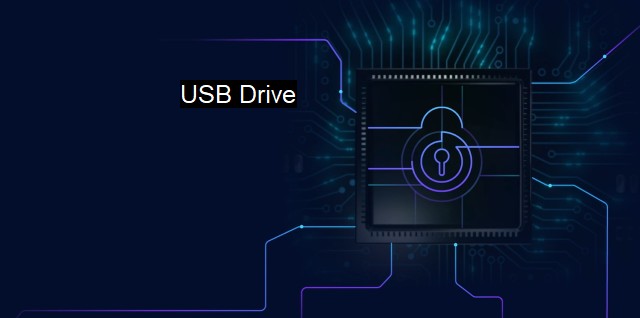What is USB Drive?
Securing Your Data on the Go: Why Antivirus Software is Critical for Protecting USB Drives
A Universal Serial Bus (USB) drive, also referred to as a flash drive or pen drive, is a portable data storage device that includes flash memory with an integrated USB interface. This device is compact, light, and portable, enabling data to be conveniently stored and transported. USB drives often represent a double-edged sword with value on one edge and risk on the other.The inherent value of a USB drive lies in its portability and capacity to hold vast amounts of data. These devices come in various sizes ranging from as little as 128MB to as large as 2TB. This portability affords users an easy means of transferring data from one computing device to another.
Alongside their benefits, USB drives might also present significant cybersecurity risks because they can easily become conduits for the spread of computer viruses, malware, and other forms of harmful cyber threats. Cyber attackers often exploit the convenience of USB drives to orchestrate attacks against individual computers or entire networks.
The simplest and most commonplace form of this threat involves a cyber attacker loading a USB drive with malicious software and leaving it somewhere conspicuous. If an unsuspecting person finds this drive and inserts it into their computer, the malicious software can significantly compromise the computer's security, often without the user's knowledge.
In other, more sophisticated attacks, a USB drive can serve as a transport mechanism for Advanced Persistent Threats (APTs), where the attacker persistently and covertly breaches a network. If the tainted USB drive gets connected to a machine within a network, it could have a catastrophic effect, quickly compromising the system's security.
To counter these threats, antivirus and anti-malware software providers have incorporated USB drive scanning features as a foundational cybersecurity function. This software automatically scans the USB drive as soon as it is connected to a computer, detecting and neutralizing malware threats before they cause harm. This is an essential line of defense in a broader cybersecurity protocol, providing a fundamental layer of protection against USB drive-based attacks.
One of the best ways to ensure cybersecurity when dealing with USB drives is to only use trusted devices. Avoid using USB drives from unknown sources. It is also important to keep the antivirus software updated as new viruses and malware are launched every day.
On the disciplinary front, cybersecurity policies should be in place, and employees should be trained to refrain from using unverified USB drives. Organizations should consider disabling the auto-run settings on their computers to prevent automatic execution of files when a USB drive is inserted into a PC.
Some organizations choose to completely disable USB ports on certain machines, significantly reducing the risk posed by USB drive-based attacks. While this may not be practical for all scenarios, it is an option that can be considered depending on the level of data sensitivity and the security risk assessment performed.
While USB drives offer many benefits they also present potential vulnerabilities. Anti-virus and anti-malware software acts as vital protections against these threats, but user caution and comprehensive cybersecurity policies are an integral part of the defense.
Today, it is more important than ever to not underestimate the potential security risks associated with USB drives, and consequently, implementing appropriate protective measures and protocols is crucial. Despite these potential risks, USB drives remain invaluable tools in our increasingly technologically driven world. The responsibility lands on both individuals and organizations to ensure that they are used in a secure and responsible manner.

USB Drive FAQs
What is a USB drive?
A USB drive is a portable storage device that allows users to store, transfer and transport data files. It is also known as a flash drive, thumb drive or USB stick.Can USB drives be infected with viruses?
Yes, USB drives are known to be common carriers of viruses and other malicious software. Once infected, the virus can spread to other devices when the USB drive is connected to them.How can I protect my computer from viruses on USB drives?
To protect your computer from viruses on USB drives, you should have a good antivirus software installed. You can also set up your antivirus to automatically scan USB drives when they are inserted into your computer.Are all USB drives the same when it comes to cybersecurity?
No, not all USB drives are the same when it comes to cybersecurity. Some USB drives may have additional security measures built-in, such as encryption, password protection, or read-only access. It's important to choose a USB drive that meets your security needs.| | A | | | B | | | C | | | D | | | E | | | F | | | G | | | H | | | I | | | J | | | K | | | L | | | M | |
| | N | | | O | | | P | | | Q | | | R | | | S | | | T | | | U | | | V | | | W | | | X | | | Y | | | Z | |
| | 1 | | | 2 | | | 3 | | | 4 | | | 7 | | | 8 | | |||||||